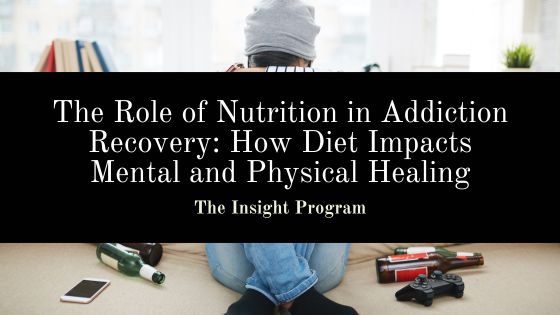Recovering from addiction is a multifaceted process that involves mental, emotional, and physical healing. While therapy and support groups are often emphasized, nutrition plays a crucial yet often overlooked role in recovery. A well-balanced diet can help repair the body, stabilize mood, and reduce cravings, ultimately supporting long-term sobriety.
How Addiction Affects Nutrition
Substance abuse often leads to poor dietary habits, malnutrition, and imbalances in essential nutrients. Different substances affect the body in various ways:
- Alcohol Abuse: Depletes vital vitamins such as B1 (thiamine), B6, and folate, leading to neurological and cognitive issues.
- Opioid Use: Often causes gastrointestinal problems, including constipation and poor nutrient absorption.
- Stimulants (Cocaine, Methamphetamine): Suppress appetite, leading to significant weight loss and nutrient deficiencies.
- Marijuana Use: Can trigger overeating and unhealthy food choices, increasing the risk of obesity and metabolic issues.
Key Nutrients for Addiction Recovery
Proper nutrition can help restore the body’s balance, enhance mental health, and support overall well-being. Here are some key nutrients essential for recovery:
- Protein-Rich Foods: Help rebuild tissues and produce neurotransmitters that regulate mood and cognition. Good sources include lean meats, fish, eggs, beans, and nuts.
- Omega-3 Fatty Acids: Found in salmon, flaxseeds, and walnuts, these healthy fats reduce inflammation and support brain function.
- Complex Carbohydrates: Whole grains, fruits, and vegetables provide steady energy and help stabilize blood sugar, reducing mood swings and cravings.
- B Vitamins: Found in leafy greens, whole grains, and dairy, B vitamins support brain health and reduce anxiety and depression.
- Magnesium and Zinc: Essential for nerve function and stress management, these minerals are found in nuts, seeds, and legumes.
- Probiotics and Fiber: Found in yogurt, kefir, and fermented foods, probiotics improve gut health, which plays a crucial role in mental well-being.
How Nutrition Supports Mental and Emotional Healing
A balanced diet does more than just restore physical health—it also plays a significant role in mental and emotional well-being. Here’s how:
- Regulating Mood: Nutrients like amino acids and healthy fats help the brain produce serotonin and dopamine, which regulate emotions.
- Reducing Cravings: Stable blood sugar levels help prevent intense cravings and mood fluctuations.
- Boosting Energy Levels: Proper nutrition reduces fatigue and supports overall vitality.
- Improving Sleep: Nutrients like magnesium and tryptophan (found in turkey and dairy) promote better sleep quality, which is essential for recovery.
Building a Sustainable Recovery Diet
Creating a recovery-friendly diet doesn’t require drastic changes. Simple, consistent choices can make a lasting impact:
- Stay Hydrated: Drinking enough water supports detoxification and overall health.
- Plan Balanced Meals: Aim for a variety of proteins, healthy fats, and fiber-rich carbohydrates.
- Avoid Processed Foods: Minimize sugar and unhealthy fats that can lead to energy crashes and mood instability.
- Practice Mindful Eating: Paying attention to hunger and fullness cues helps develop a healthier relationship with food.
Conclusion
Nutrition is a powerful tool in addiction recovery, promoting physical healing, mental stability, and emotional resilience. By prioritizing whole, nutrient-dense foods, individuals can support their journey to sobriety and long-term well-being. Recovery isn’t just about quitting substances—it’s about rebuilding a healthy, fulfilling life, and nutrition plays a key role in that transformation.

